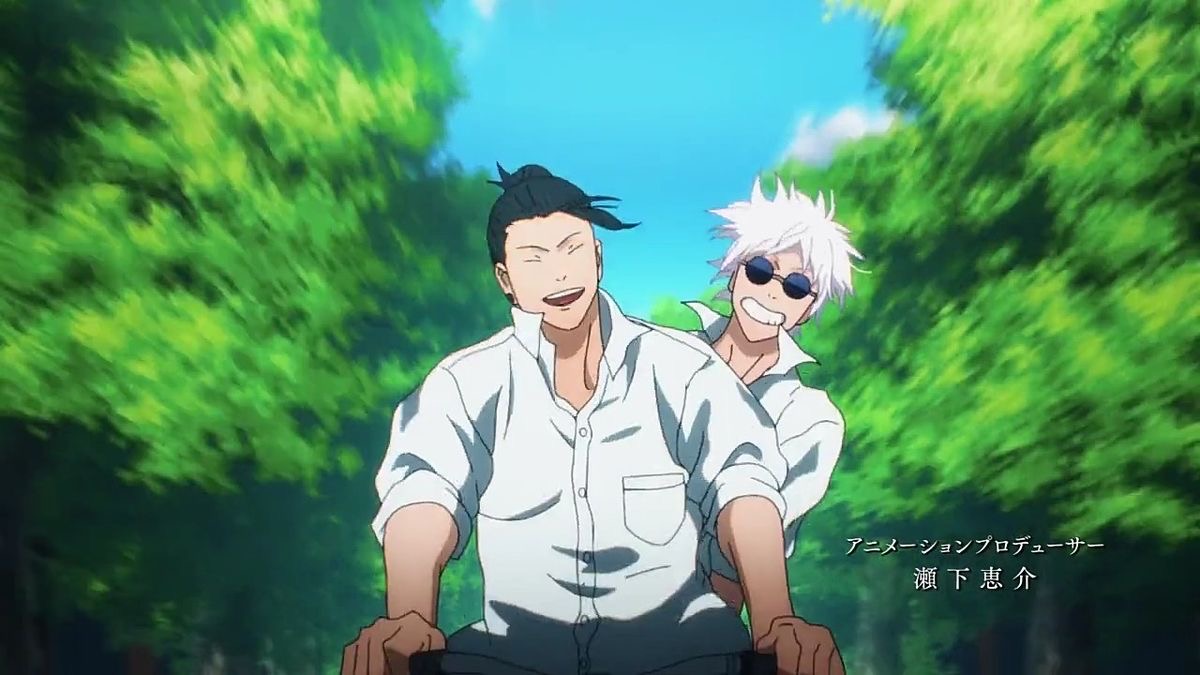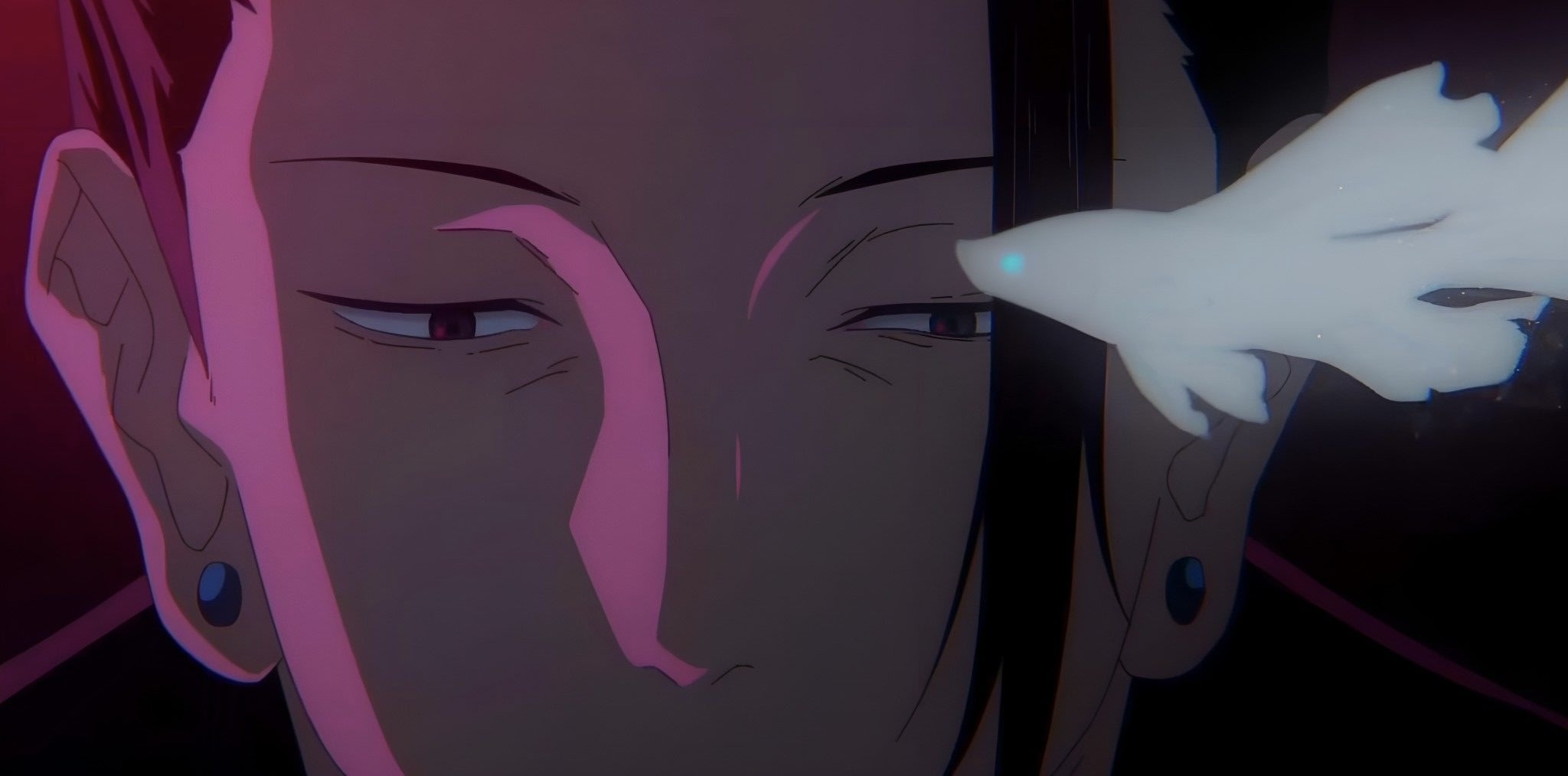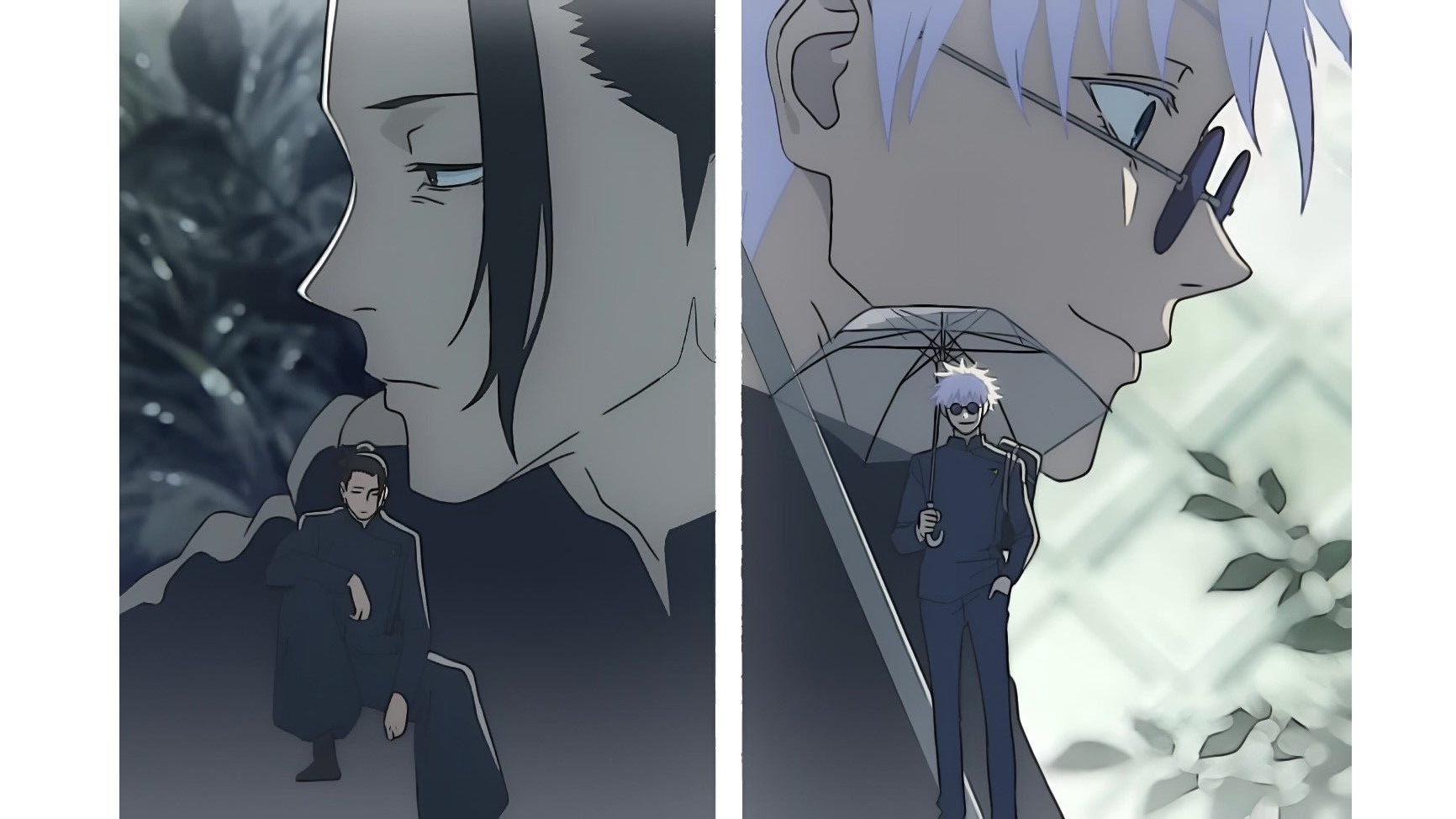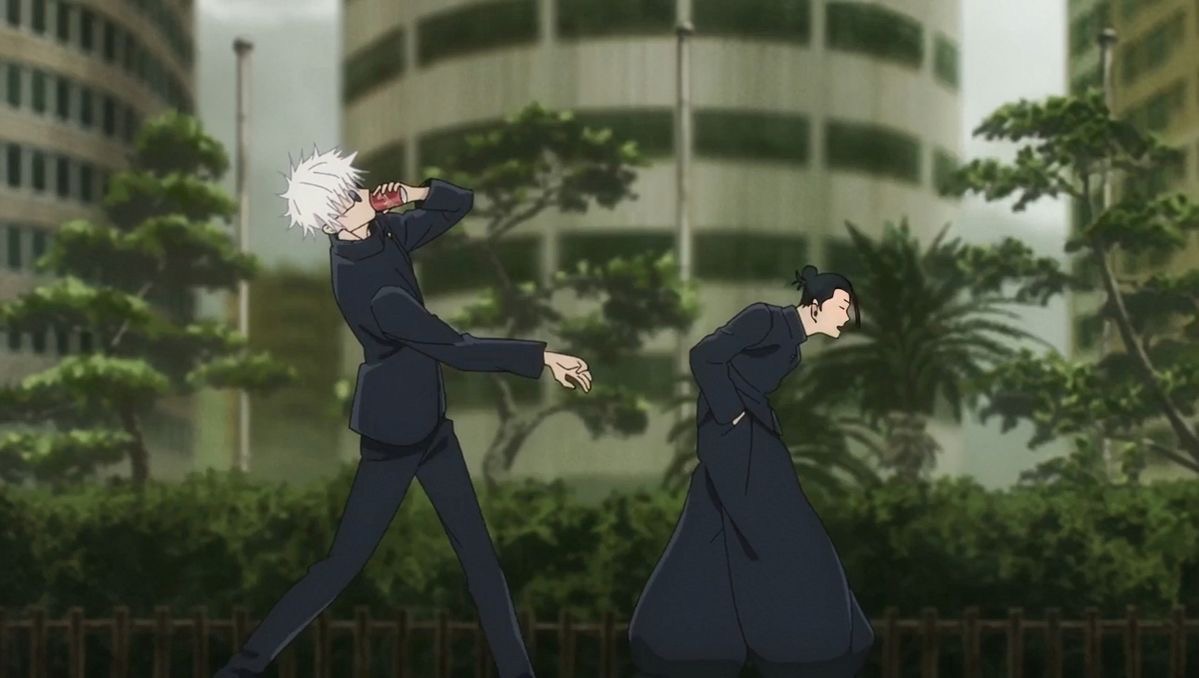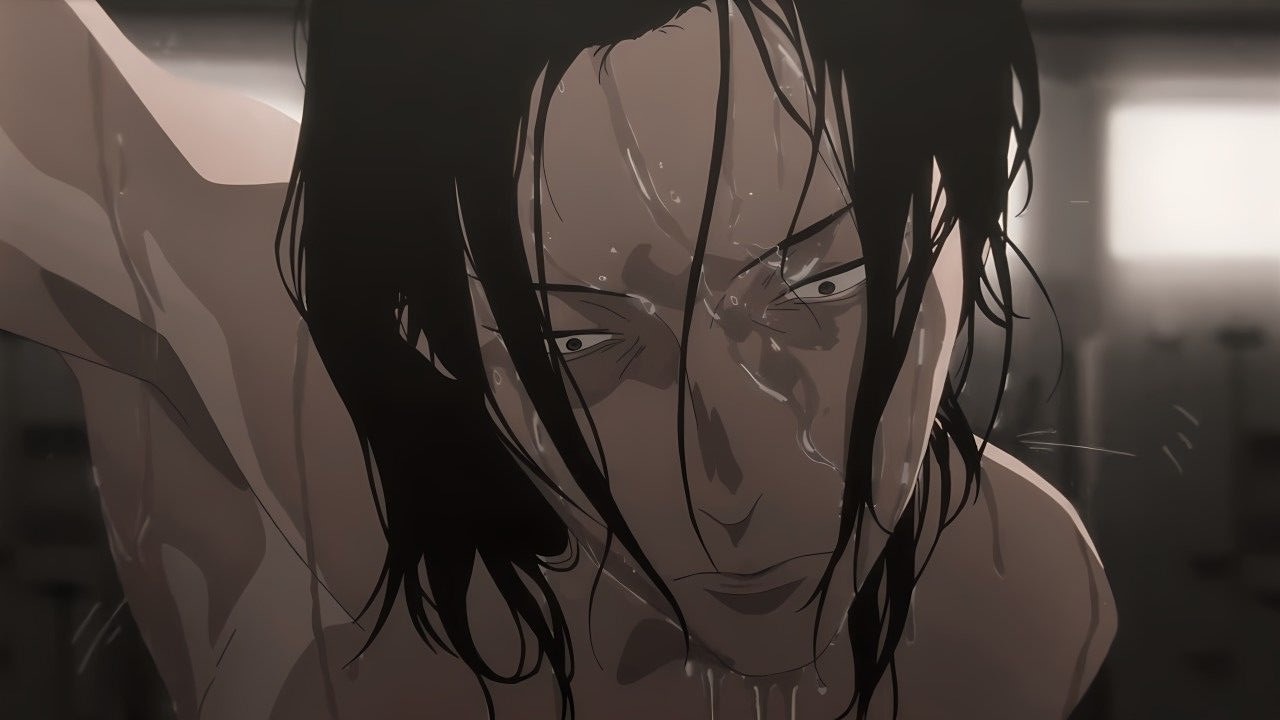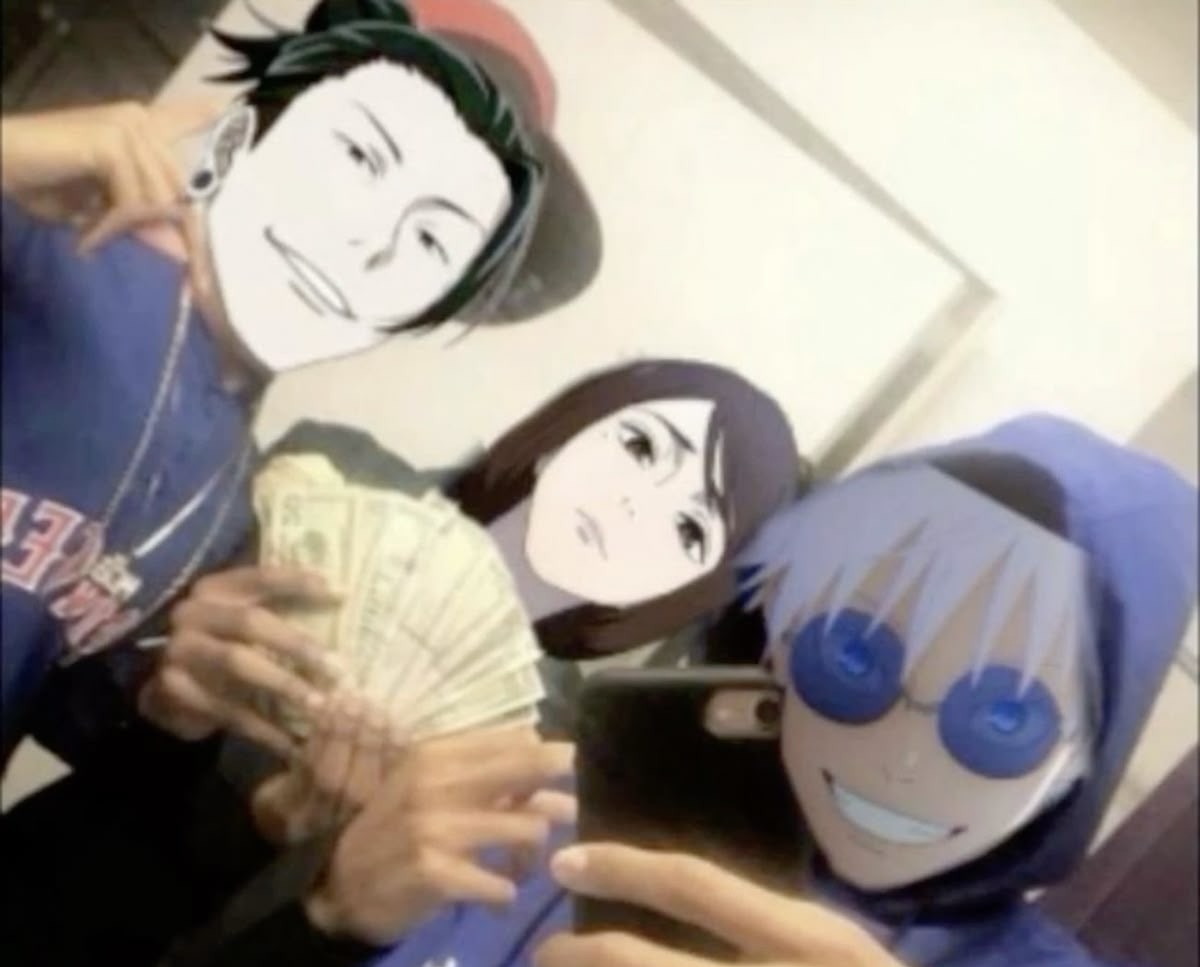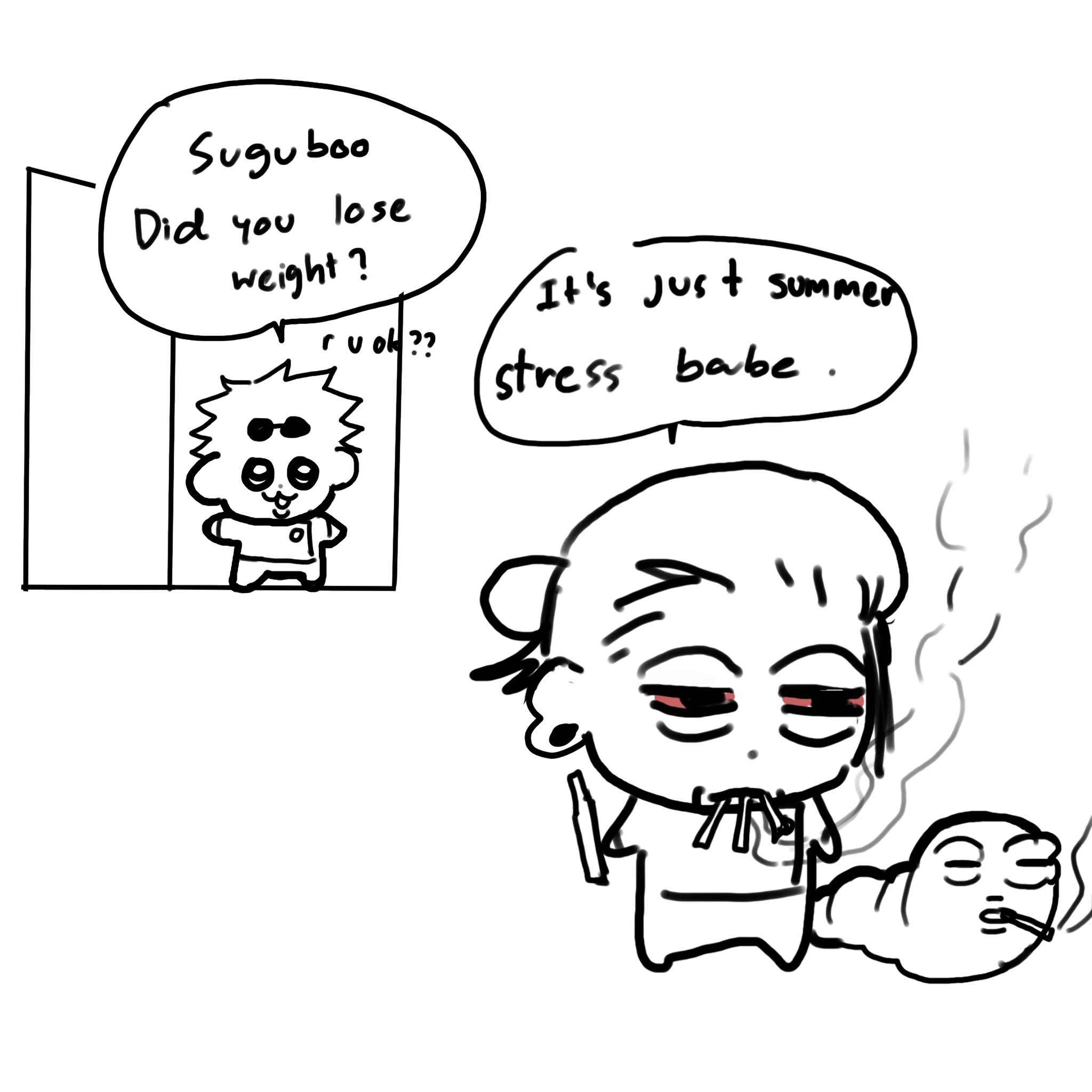Suguru Geto
The Quiet Collapse
He is the best representation of depression I’ve ever seen in shonen. It doesn’t take a hundred chapters to showcase a character’s downfall. It doesn’t take a hundred significant events to cause someone to break.
Gege shows the most realistic mental breakdown using only a handful of chapters—and still makes it slow, painful, and gutting. Depression can start with one big event, sure. But it doesn’t take more than that to deepen. Left untreated, it runs a vicious course. It eats away at you slowly, methodically. It’s not one dramatic outburst—screaming, clutching your head, cursing God and the world. It’s quieter than that. It’s the weight of everything piling on, one thing after another, until you reach the end of that pile and realize nothing will ever change.
Geto had a big event—the fight with Toji, the failure to save Riko. But even without that, his mental health was already on a downward slope. The real issue was his ability: Cursed Spirit Manipulation. As long as he kept swallowing curses—literal manifestations of every vile human emotion—he was feeding on rot. And that rot was feeding on him. The more he absorbed, the more he lost himself in it.
He wasn’t changing anything. He couldn’t. All he could do was keep swimming through the filth, because that’s all there was.
Gege wasn’t just making a statement about Geto’s technique. He was talking about people. About how staying in a toxic situation doesn’t always make you stronger. In fact, it usually doesn’t. It breaks you down, piece by piece. A sixteen-year-old Geto isn’t just a sorcerer. He’s also like a sixteen-year-old at school, surrounded by people who pick on them, tear them down with words and silence. That kid can’t leave—school is mandatory. So they stay, absorbing every insult, every laugh behind their back, until it becomes part of them. Even if they have friends, those friends can never fully understand what it’s like to be humiliated and torn apart every single day.
And no, it’s not rational to push away the people who care. But who said people are always rational? We’re not. We make mistakes. We don't always choose the right thing. Geto didn’t. He saw someone offer him a hand, a possible light buried under all that pain—and twisted it. Warped it to match the hopelessness already consuming him. He walked away, and swore to destroy the world that made him this way. Just like that bullied kid might walk away from school, from society, from everyone, in whatever form that takes.
I want to touch on the physical side of his depression too, because Gege gets it. I said this in a previous analysis of him (his character is just that amazing, what can I say?), but Gege knew that the mind doesn’t suffer alone. The body follows. Geto is drawn with deep eyebags—whether from insomnia or the kind of exhaustion that makes you want to sleep forever. Depression makes you tired all the time. Everything becomes hard. He sits hunched over, resting his weight on his knees, like even sitting upright is too much effort.
When someone talks to him, he blinks—slowly, too slowly—before responding, like just processing someone’s words costs too much energy. He even looks thinner to me. It’s hard to maintain regular meals or exercise when your mind is fighting an invisible war every second of every day.
The Umbrella Motif
The opening of Jujutsu Kaisen Season 2 is full of symbolism. But there’s one particular motif that quietly foreshadows the trajectory—and tragedy—of Gojo and Geto’s love story.
Almost immediately, we see Geto running through the rain. The choice to show him holding his bag over his head is deliberate—it highlights what he doesn’t have but clearly needs: an umbrella.
Gojo, on the other hand, isn’t in a rush. He stops to look at a cat. He has what Geto needs, but he’s not hurrying. Their behavior doesn’t match. Geto is running to get out of the rain. Gojo is standing still, taking his time.
The urgency keeps building. Geto is waiting, bouncing his leg. He’s not using his bag to cover himself anymore. He knows Gojo is coming—that’s why he’s impatient. He’s waiting for someone who has what he needs, and that someone is late. Gojo still doesn’t pick up the pace, even though it’s raining, even though Geto’s still getting soaked.
As the audience, we feel Geto’s impatience. We want Gojo to hurry. But he doesn’t.
Sharing an umbrella is a well-known trope in Japan—it even has its own name. That’s what Gojo is doing. He’s bringing an umbrella for them to share. That’s why the anime keeps cutting between them. It reinforces what Geto doesn’t have and what Gojo does. It ties the narrative together through the umbrella.
By the time Gojo finally shows up, the sun’s come out. He lowers the umbrella and smiles, rubbing the back of his neck. Meanwhile, Geto looks... resigned. Like he’s already accepted that Gojo took too long. They can’t share the umbrella anymore. They missed their chance.
And if you look closely, you can see Geto saying something to Gojo when he finally shows up. I’d bet actual money on what it was:
“You’re late, Satoru.”
Empathy Turned Inward
Yes, Suguru’s plan to exterminate most of humanity is undeniably evil—but to say he’s murderous from the start, cruel for cruelty’s sake, or lacking compassion and emotional nuance is a gross disservice to how he's written. Suguru is a case study in romantic idealism turned inside out. A self-sacrificial savior whose absurdly rigid, almost quixotic ideals are shattered by reality. The hatred he eventually harbors for humanity is born from—is the inverse of—the love he once had for it. That’s why, even though Satoru is portrayed as brash, arrogant, and selfish in the Hidden Inventory arc, it’s Suguru who turns “villainous.” Suguru believes in the goodness of people. He believes that the role of a shaman is to protect the weak, that their existence is meant to serve non-sorcerers. But for that belief, he is betrayed—so deeply, so violently—that there's no way back to who he used to be. Satoru doesn’t fall in the same way for two main reasons: “Protecting humanity” was never his cause. He never cared much about human life to begin with—look at how he planned to kill the cultists who cheered Riko’s death. He had someone protecting his heart: Suguru. It’s Suguru who tells him why shamans protect non-sorcerers, who urges him to sympathize with Riko, who talks him down from meaningless violence. Satoru cares about Riko too—he’s the one who decides not to force her to fuse with Tengen if she wants to go home. He tries to make her last days feel normal, feel kind. So it wouldn’t have been surprising if he had turned to villainy after her death. He never liked non-sorcerers anyway. And yet, he doesn’t. Because Suguru is there to protect his heart. But Suguru doesn’t have anyone to do the same for him. He’s strong, yes—but not the strongest. No one notices the depth of the abyss he’s falling into. He succumbs to that crushing loneliness. He falters. Suguru is brimming with love and compassion. It’s what drives both his heroism and his villainy. He’s able to protect Gojo’s heart—but not his own. He swings between two extremes: complete devotion to protecting humanity, and complete rejection of it. Three things become the final nails in his coffin: Yuki’s words, Haibara’s death, and Miminana’s abuse. He describes consuming curses as “like eating a rag used to clean vomit.” That’s how grotesque his duty is—and for what? For the same humans who killed Riko? The ones Haibara died for? The ones who abused Miminana? Toji and Sonoda are clear villains, but they don’t shatter Suguru’s belief in humanity. The turning point is when he sees the cultists cheering Riko’s death. That’s when he’s forced to face the banality of evil. And Suguru answers that evil by turning on what he once loved. He believes the only way to end curses is to remove their source: humanity itself. There’s no one left to tell him otherwise. No one to anchor his identity. He drowns in the very empathy that once drove him. He becomes consumed by his ideals. He isn’t indifferent. He can’t pick and choose whom to care for. When he loves, he gives everything. And even when he hates, the love never fully leaves. Who does he target first, once he has the power and means? Sonoda—the man who ordered Riko’s assassination. That’s not a random act of cruelty. It’s personal. Someone who lies in wait to enact vengeance does it out of love. A tyrant wouldn’t bother remembering the reasons. Suguru’s entire story—his rise as a hero and his fall as a villain—has always been about love. And even until the end, he prioritizes Satoru over himself. He doesn’t treat Satoru like a weapon. He doesn’t demand that he join him. He simply asks him a question. Offers him a choice. And that shakes Satoru. That moment changes him. It leads Gojo to become a teacher. To shift from someone who only ever stood alone to someone who genuinely cares for his students. And he never would’ve gotten there without Suguru’s fall as a mirror. Gojo apologizes to Riko during his fight with Toji, not because he mourns her, but because in that moment, all he feels is the thrill of power. It's not Riko’s death that wakes him up—it's losing Suguru. As evil as Suguru becomes, he isn’t a hypocrite. That he kills his own parents is meant to show just how serious he is. His ideology stays consistent—when he’s pro-human, and when he turns pro-shaman. It mirrors what Mahito tells Yuji: “Do you ever think about how many curses you kill? So why should I care about how many humans I kill?” Suguru is the answer to that. Someone has to care about how many shamans are killed. Condemn his actions. Criticize the collective punishment. He is a villain. But JJK presents us with a villain who once had deeply held, moral ideals. One who felt too much, not too little. He cared about Riko—a doomed girl forgotten by the world. He enshrines Haibara in memory when no one else does. Others move on. Suguru sinks. His empathy is a sword of Damocles hanging over his head. It cuts deep. To say he is cold or cruel is to deny the very pain that drives him. Yes, he is wrong to want others to suffer as he has. But he is a villain. That is what villains do. Mahito asks Junpei: “Is the opposite of love indifference?” To Satoru, maybe. To Suguru, it’s hatred.
Gallery
